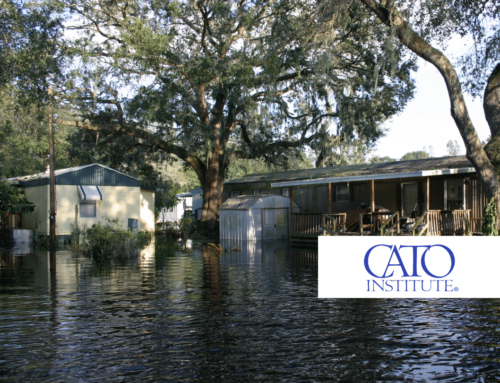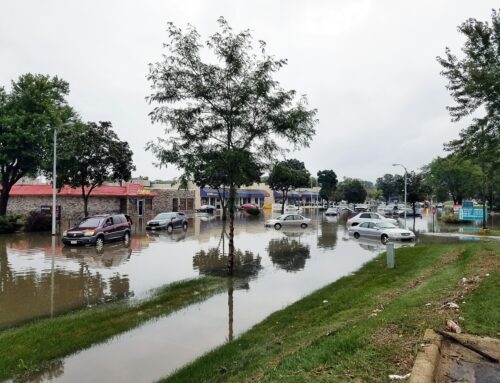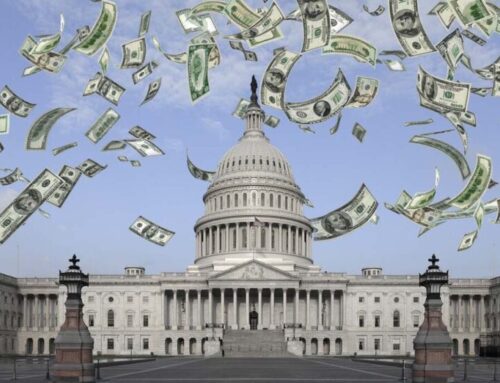The Senate Environment and Public Works Committee just approved the latest $265 billion Highway Bill in less than 20 minutes on a voice vote. That’s almost $14 billion a minute. Now it goes to the full Senate. The bill is meant to be a blueprint for funding the nation’s roads for the next six years. Unfortunately, it is yet another example of Congress’ head-in-the-sand mentality that explains the poor condition of our roads, and our budget.
The bill mostly increases the funding amounts for the nation’s core highway programs over the coming years, further widening the gap between the amount the federal gas tax pays into the Highway Trust Fund (HTF) (roughly $39 billion) every year, and the amount Congress spends on these programs annually (roughly $51 billion). For the last several years lawmakers have been raiding the general treasury to make up for this known shortfall. But instead of tackling the problem head on, the Senators decided to submit yet another Highway Bill without addressing the costly 800 pound gorilla in the hearing room. As it stands, the bill will require the Senate Finance Committee to find $100 billion in new funding elsewhere in order to pay for all the programs for the entire six years.
Though the committee tied spending on core highway programs to inflation, increasing the amount from $38.4 billion in 2015 to $42.6 billion by 2020, the gas tax is not tied to inflation. The gas tax has been pegged at 18.4 cent-per-gallon tax on gasoline and ethanol-blended fuels and a 24.4 cent-per-gallon tax on diesel fuels since 1993. So while the costs of highway maintenance and construction steadily rise, the dedicated funding stream slowly dries up – its receipts are worth about 38 percent less than they were 20 years ago. Furthermore, Americans are driving less and driving more fuel efficient vehicles, further reducing HTF coffers. Even though the last highway bill was passed less than two years ago, the Department of Transportation estimates that the HTF will actually run out of money soon and certainly before the current legislation expires September 30, 2014. Imagine the fallout from all current federal-funded highway projects grinding to a halt as road crews stop receiving paychecks.
In February, House Ways and Means Committee Chairman Dave Camp (R-MI) released an ambitious tax reform proposal that included a one-time transfer of $126.5 billion spread over eight years to the HTF by creating a new tax on repatriated profits from overseas corporate subsidiaries. This would keep the HTF solvent at existing levels until about 2021. The White House had the same idea in its last budget proposal. One problem with this is that it is not sustainable long-term – it just enables more contracting on money that isn’t there. What happens in 2021? Furthermore, the gas tax and the highway system were supposed to operate in tandem – a road-user fee to pay for roads. Grabbing more general tax revenue for roads from money that has been parked overseas is wrong-headed. Lawmakers should direct any revenue from repatriated tax dollars to the general fund, not roads.
Besides the basic revenue-spending gap that exists, there are other problems with the nation’s highway system Senators have ignored. As we reported in March, the condition of many of the nation’s roadways is deteriorating while states use federal highway money to expand, rather than repair, their networks. While this is largely a state-level problem, Congress can assert itself by tying federal dollars to the condition of state highways. States that meet federal standards could transfer federal funds to other programs, and those that fail to meet the established standards would be required to invest program funds in repair and preservation. That didn’t happen.
The Committee also shunned the idea of easing restrictions for state tolling on federal highways that the administration included in its highway proposal. More tolling isn’t a stand-alone solution to the revenue problem, but the option conserves the road user– road revenue link while increasing states’ flexibility to fund their transportation systems and reduce congestion. At a minimum, it demonstrates some recognition that policymakers shouldn’t spend money without considering where it comes from. Instead, the Committee merely directs the DOT Secretary to conduct a(nother) study of alternative funding sources for highway spending in the years ahead. Presumably, we can add the results of this one to the others that have already been done (here, here, and here) on this precise question.
It is long past time that Senators stop writing checks on money that’s not there, and the Highway bill is one of the worst examples of this. The latest proposal from the EPW Committee is a missed opportunity. It is time to consider an alternative process within Congress for funding federal highways that builds in more fiscal accountability.











Get Social